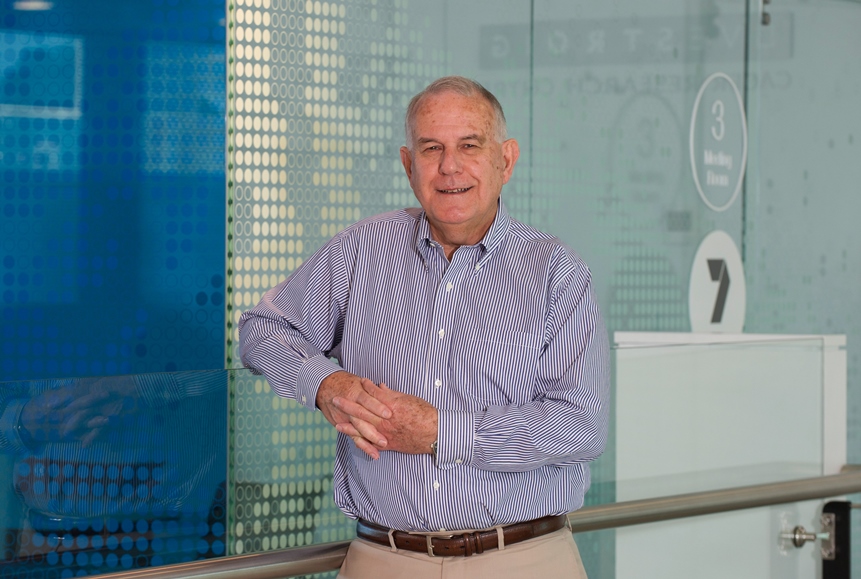
Matthew Flinders Distinguished Emeritus Professor Graeme Young used last week’s College of Medicine and Public Health Forum to reflect on his life’s work, marking 50 years since his academic career started, and 25 years since moving from Melbourne to Flinders University – “the richer part of my academic career” as he described it.
The strategy of his research career was outlined in a farewell address that Professor Young gave called “Keeping the Pipes Clean – five decades in the gut”, that traced highlights of his extraordinary career, which included driving the creation of the Flinders Centre for Innovation in Cancer, before his retirement from Flinders University last year.
Professor Young explained that his medical research began with him being stationed in PNG as a medical doctor doing National Service in 1971, when leprosy in that country was high, but adverse effects during anti-leprosy treatment was also high, due to side effects from drugs reacting with recessive genes. He was challenged to device a simple test without much equipment, and he found a solution. It shaped the way he sought to address problems that became a hallmark throughout his career.
By 1984, he had focused his research on bowel health, in tandem with prevention of Colorectal Cancer – by balancing the colonic ecosystem (and understanding how dietary factors affect this), and by developing biomarkers to screen and monitor therapy.
He says the most important aspect was translating laboratory tests to introduce change into the population. He recalled an important trial that came as a consequence of delivering an address at a major international conference and trading ideas with other experts, leading to them devising new tests to prevent dehydration through colonic health change.
This led to a major international series of studies, and even trying to improve the rehydration of Australian Rules footballers, doing trials with Adelaide Crows players in 2014 to test a special shake with resistant starch during training and recovery – providing significant benefits through preventing loss of fluids during performance.
More studies of resistant starch showed a pathway to solutions for the growing problem of colorectal cancer– with a global annual diagnosis rate of about 1.4 million people that is skyrocketing as more populations grow in affluence, noting that about 75% of causes are linked to diet and lifestyle.
Trying to curb this requires more screening across populations, but Professor Young faced challenges to achieve this, noting initially insufficient technology – highlighting the need for simpler, improved tests – and public reticence to do the test, for which Professor Young coined the phrase “faecophoia”.
It required radical thinking to forge new solutions, and the efforts of Professor Young and colleagues to isolate traces of blood in the large intestine through testing saw them drink their own blood mixed with tomato juice and then test their own faeces. It provided answers for better tests that have ultimately led to reduced death rates from cancer, and greatly increased early identification of cancer.
Professor Young noted that while the new test worked, the greater challenge was to increase participation numbers of bowel cancer screening to truly reduce bowel cancer statistics. He collaborated with behavioural experts to make the next essential breakthrough of getting more people to test, and this led to the National Bowel Cancer Screening Program – which has enjoyed enormous success in reducing fatalities, and advanced stages of bowel cancer. This has led to a massive global expansion of programs, with more than 50 countries now having organised bowel cancer screening programs.
Professor Young closed his address by reflecting that more than 500 people have co-authored research with him, many based at Flinders, and he thanked everyone he worked with – “so many smart people who came to me with smart ideas and have been able to put all the pieces together”.

